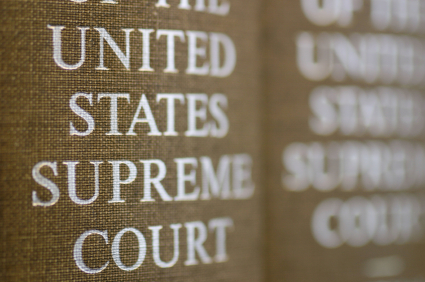
Some interesting search and seizure case law came down last week. The U.S. Supreme Court ruled that exigent circumstances does not always apply to a fleeing driver and an officer’s authority to invade the sanctity of one’s home.
The case arose from a police officer’s warrantless entry into a person’s garage after the officer heard the person playing loud music and honking his horn while driving. The officer followed the person and turned on his overhead lights to signal for him to pull over. Rather than stopping, however, the person elected to drive a short distance to his driveway and entered into his home’s garage. The officer followed the person into the garage, questioned him and observed signs of intoxication. He thereafter put him through field sobriety tests. A later blood test showed that the person’s blood-alcohol content was three times the legal limit. The man was charged with DUI, a misdemeanor in California.
The US Supreme Court held that Under the Fourth Amendment, pursuit of a fleeing misdemeanor suspect does not always, categorically, justify a warrantless entry into a home. The Court’s Fourth Amendment analysis favors a case-by-case assessment of exigency when deciding whether a suspected misdemeanant’s flight justifies a warrantless home entry. In this case, the Court found, it didn’t.
The Fourth Amendment generally requires that a law enforcement officer obtain a judicial warrant before entering a person’s home without permission. However, an officer may make a warrantless entry when there are exigent circumstances at play. Such exigencies may exist when an officer must act to prevent imminent injury, the destruction of evidence, or a suspect’s escape. In this case, the Supreme Court found that there is no ‘flat-rule’ permitting warrantless home entries whenever a police officer pursues a fleeing misdemeanant (not a felon). This is so because misdemeanors run the gamut of seriousness, and they may, in fact, be minor. States tend to apply the misdemeanor label to less violent and less dangerous crimes.
The Court has held that when a minor offense (and no flight) is involved, police officers do not usually face the kind of emergency that can justify a warrantless home entry. Add a suspect’s flight and the calculus ‘may’ change, but certainly not enough to justify a categorical rule. Thus, the pursuit of a misdemeanant does not automatically trigger a categorical rule allowing a warrantless home entry. This is so because common law afforded the home strong protection from government intrusion and it generally required a warrant before a government official could enter the home. An officer, according to the common-law treatises, could enter a house to pursue a felon. But in the misdemeanor context, officers had more limited authority to intrude into a fleeing suspect’s home. In short, the common law did not have a categorical rule allowing warrantless home entry when a suspected misdemeanant flees. Hence, the Court found in favor of the Petitioner, not the government.
Anyone cited for DUI in-and-around Western Washington is best advised to immediately seek the assistance of a reputable and highly qualified DUI lawyer. A qualified and respected DUI lawyer, among other things, can possibly save you thousands of dollars in court and insurance fees, the extent of loss of your driving privileges, and the amount of time to be served in jail. We have said it before and will say it again, Washington DUI laws are far too complicated for any ol’ attorney to handle. Anyone arrested for DUI should be smart and consult with a qualified and skilled DUI attorney when arrested for an alcohol and/or drug related DUI in Washington State. SQ Attorneys is here to help – (206) 441-1600.

